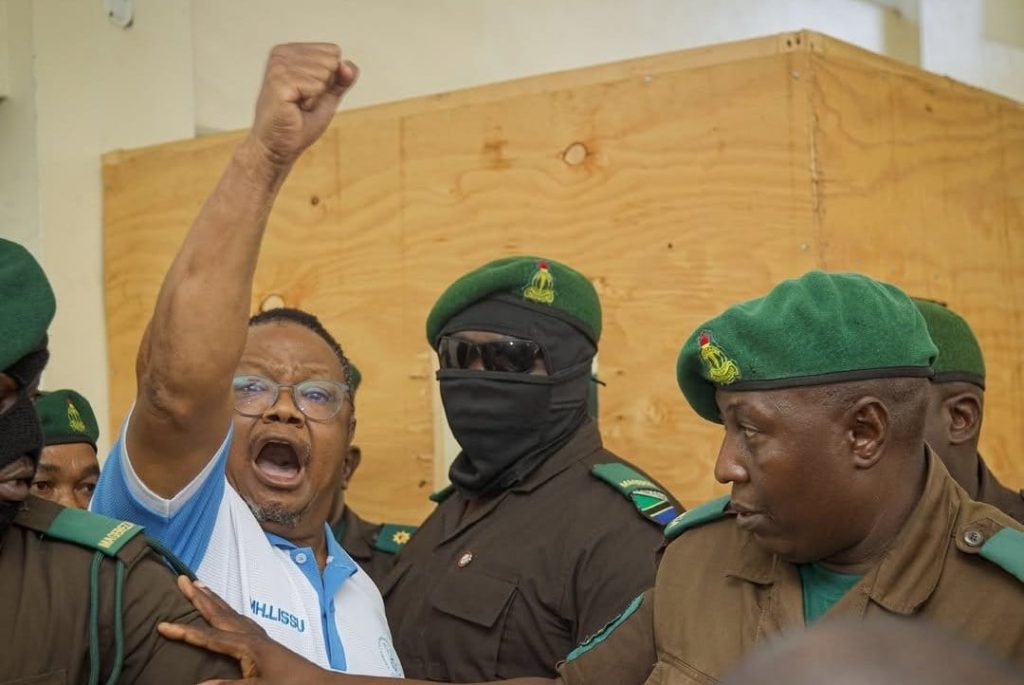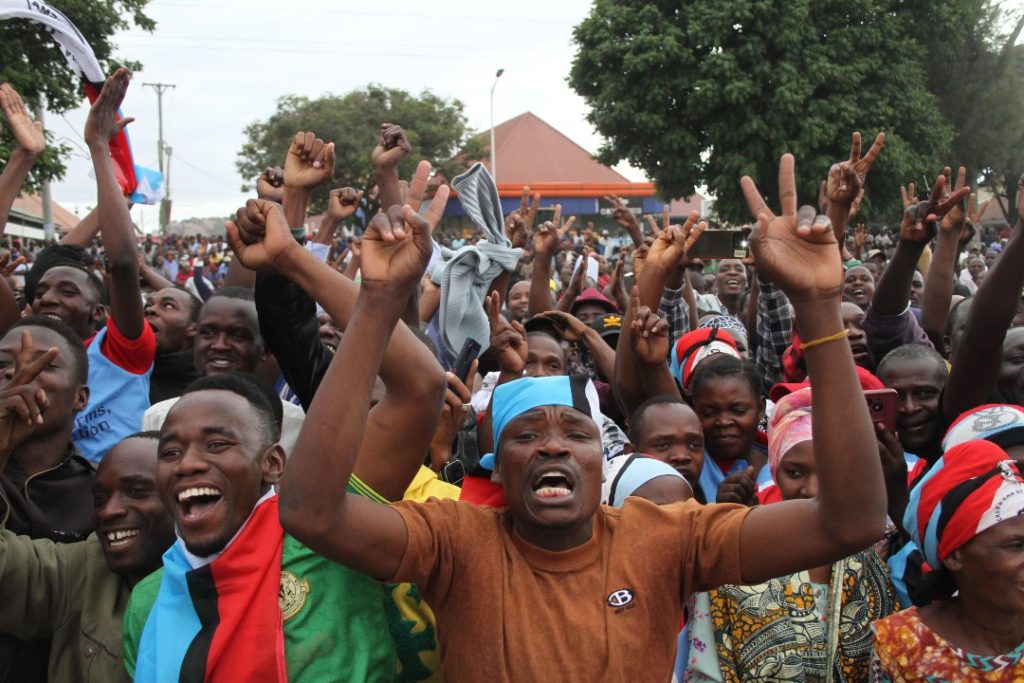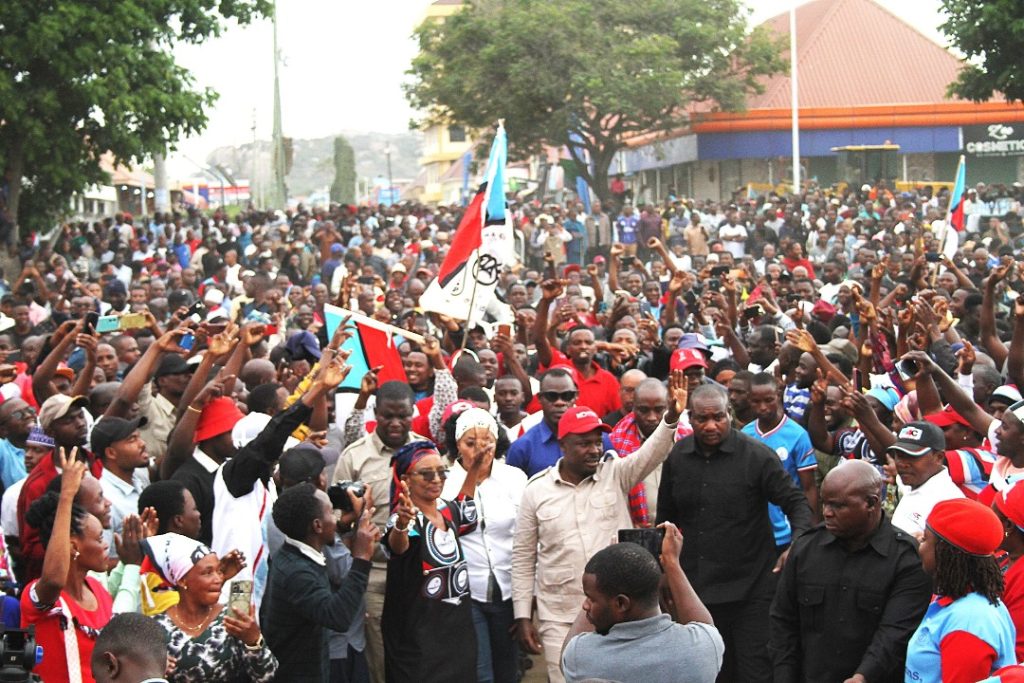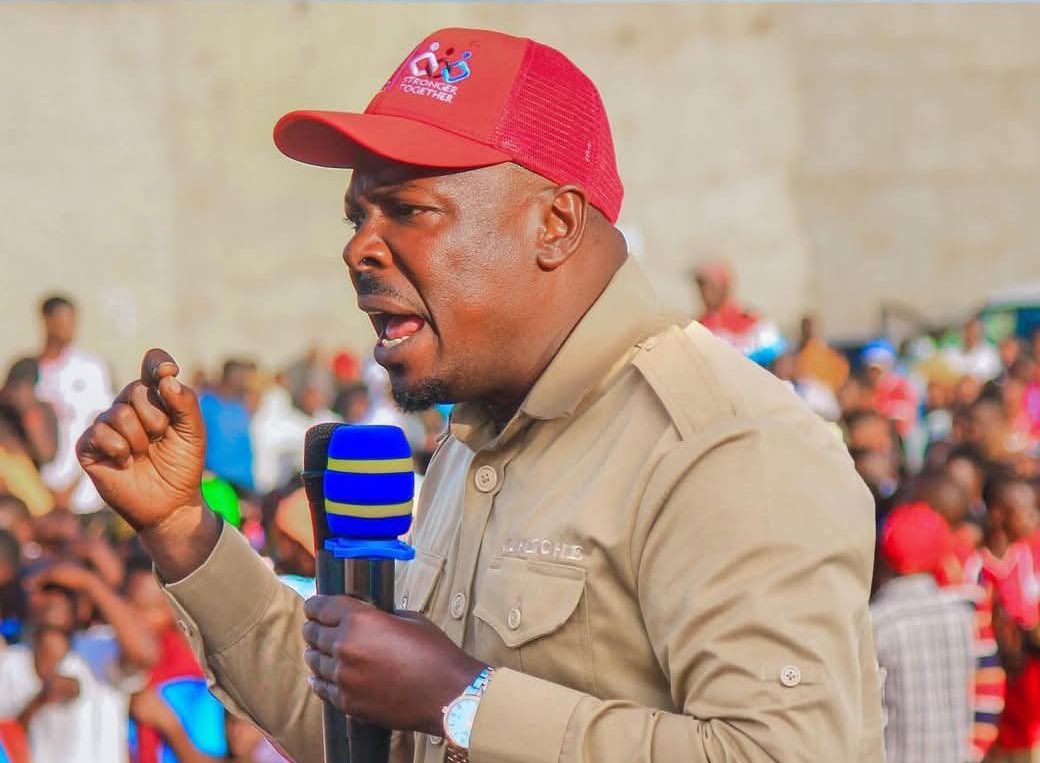“While others were calculating their next move, Heche, fought, and led.”
In a region where political fear often overshadows freedom, and where authoritarianism tightens its grip with every passing day, the emergence of John Wegesa Heche is nothing short of revolutionary. For a country like Tanzania, governed by a single ruling party—Chama Cha Mapinduzi (CCM)—for over 64 years, the rise of a fearless, influential, and people-centered leader feels almost divine. It’s as if the ancestors themselves have gifted the nation a spark of resistance in human form. Heche’s political journey is more than just a personal story—it is a symbol of awakening for a new generation of East African activists, dreamers, and political aspirants. In a land where the opposition is often branded as the enemy of the state—facing illegal detentions, enforced disappearances, torture, sexual violence, and state-sanctioned killings—hope had become a scarce currency. But in the midst of this oppression, Heche’s voice has roared, not as an echo, but as a call to action.
His presence is not just felt—it is lived. It is in the defiant chants of the youth, the rekindled hope of grieving families, and the whispered dreams of a nation too long silenced. John Heche represents not just resistance, but rebirth—a powerful reminder that even in darkness, light always finds a way.
On 21st January 2025, the winds of change blew through Mlimani City, Dar es Salaam, as John Heche, running mate to Tundu Lissu, emerged victorious in a historic, democratic, and transparent electoral process within Tanzania’s main opposition party, Chadema. This wasn’t just any party election—it was the most anticipated political contest in years, as they faced off against the formidable Freeman Mbowe, Chadema’s long-standing chairman of 21 years. It was not an easy race. The odds were heavy, the stakes high, and the establishment deeply rooted. Yet, Heche and Lissu came out on top. Their win wasn’t just a political shift—it cracked open the door to new possibilities, to change many thought was impossible.
Now the question looms large: Will this wave of transformation spread beyond the party, across Tanzania, and ripple through the entire region?
This is what we are exploring—and what we are urging. A revolution of mindset and leadership. The rise of a new political order—rooted not in fear or force, but in transparency, resilience, impact, capability, integrity, and accountability. A call to leave behind the politics of oppression, corruption, dysfunction, and the suppression of basic freedoms.
Tanzania may very well be introducing the new face of global political trends—one that reflects the people’s will, honors human dignity, and builds a future led by courage and conscience.
But the victory, as symbolic and energizing as it was, proved to be short-lived.


On 9th April 2025, just months after the historic win, Tundu Lissu was arrested following a rally held in southern Tanzania. The charges? Treason, false publication, and incitement—all linked to his vocal campaign for electoral reform under the now-viral banner, #NoReformsNoElection. His case has since been adjourned to 16 June 2025, a date that has become a rallying point for the movement nationwide.
The government’s crackdown didn’t stop there. In a calculated blow, Chadema was barred from participating in the 2025 General Election, for failing to sign a code of conduct— mere days after Lissu’s arrest. Then came the economic sabotage. The Registrar of Political Parties, Francis Mutungi announced an immediate suspension of state subsidies to Chadema, repeating a tactic previously used to suffocate the party’s operations for over three years. But even under pressure, the party had learned to survive. Anticipating such suppression, Chadema had already launched the “Tone Tone” campaign—a grassroots digital funding initiative to sustain the #NoReformsNoElection movement through citizen contributions. It was more than just a fundraiser; it was a declaration of independence from a regime determined to choke political dissent through financial control.
Yet, perhaps the most demoralizing blow came from within. A faction of 55 Chadema members—the G55—publicly opposed the party’s bold decision to boycott the 2025 General Election. Their defection sparked internal division, as they exited the party along with followers from across the country, defecting to political outfits still participating in the elections. It was a calculated move meant to cripple the movement, discredit the leadership, and shake the very foundation of Chadema—all while the chairman was still in remand and the movement in its infancy.
The majority never expected the party—or the movement—to survive. But John Heche did more than just survive—he rose. In a moment when Chadema teetered on the edge of collapse, when fear and betrayal threatened to extinguish the flame of hope, Heche became the bridge between chaos and continuity. He held the line. He preserved the vision. With quiet strength and unshakable purpose, he rallied the youth, reenergized the base, and brought structure to a cause left vulnerable. In the face of political sabotage and internal division, Heche didn’t flinch—he led.
The Rise of Heche
Born and raised in Northern Tanzania’s Tarime-Mara region, John Wegesa Heche has long been a political force in the making. At just 34 years old, he served as Member of Parliament for Tarime Constituency from 2015 to 2020 under Chadema, Tanzania’s main opposition party. Known for his fiery activism, bold leadership, and unwavering stand for democracy, Heche quickly earned a reputation as a leader of the people and for the people. His roots in grassroots politics, combined with a fearless commitment to justice and reform, laid the foundation for his rapid ascent. And in the party’s darkest hour, it was this very foundation that propelled him forward—not just as a survivor, but as the face of a new era in Tanzanian politics.
“Nimeanza kumsikia mwaka huu, sauti yake nimeanza kuisikia,” said one citizen — “I started hearing about him this year; his voice has begun to echo.”
In a year marked by uncertainty and political tension, John Heche’s name and voice have roared to life, commanding national attention. When the party’s chair was arrested, many expected CHADEMA to crumble. But instead of collapse, Heche rose to the occasion. He is not merely filling a leadership vacuum — he is redefining what it means to lead under pressure. Where others saw an ending, Heche saw a beginning. His presence has become a symbol of resilience, and his voice, once unfamiliar to many, is now a rallying call for change across the country.
“Hamuwezi kutibiwa vizuri, hamwezi kulala pazuri, hamuwezi kuishi vizuri na matokeo yake mnamini kwamba umaskini wenu umetengenezwa na Mungu. Mungu angetaka muwe maskini asingewaweka kwenye nchi ya tatu kwa kua na dhahabu nyingi, angewaweka jangwani.” – says Heche — he continues, Mungu ametuweka hapa ili tunufaike na rasilimali zetu kwahiyo tunahitaji mabadiliko ya kiuongozi.”
Heche is challenging a dangerous and disempowering belief — that poverty is divinely ordained, something to be endured rather than resisted. He’s speaking directly to Tanzanians who have grown up in hardship and have been conditioned to believe that suffering is simply their fate. By invoking God and gold, Heche is highlighting a striking contradiction: Tanzania is rich in natural resources — including gold, diamonds, natural gas, fertile land, and tourism potential. Yet, millions live in extreme poverty, struggling with basic needs like healthcare, nutrition, decent housing, and education.
According to Statista, as of 2022, nearly 26 million people in Tanzania lived in extreme poverty, defined by a poverty threshold of $1.90 per day. This marked an increase of approximately 100,000 people compared to 2021. However, the extreme poverty headcount is forecast to decrease in the coming years. By 2025, an estimated 25.2 million Tanzanians are projected to be living below the poverty line. In percentage terms, 40.9% of Tanzanians lived in extreme poverty in 2022, with a projected decline to 37.4% by 2025—reflecting a 3.5 percentage point reduction over three years.
The majority of Tanzania’s population lives in rural areas, where the effects of poverty are more deeply felt. Rural Tanzanians face greater challenges in breaking the cycle of poverty compared to their urban counterparts. This is due to a combination of factors, including a heavy reliance on subsistence farming, limited infrastructure, and poor access to education. As a result, the rural population suffers from inadequate healthcare, poor nutrition, heightened disadvantages for women, and an increased prevalence of child labor.
“Mabadiliko ni kwaajili ya vijana na watu maskini. Tatizo tulilo nalo ni viongozi, kwahiyo ni wajibu wenu vijana,” declared John Heche, in a bold call to action. Speaking directly to Tanzania’s youth, he reminded them that real change doesn’t come from the top — it begins with the forgotten, the underestimated, and the oppressed. In a country where the majority are young and poor, Heche made it clear: the future belongs to those brave enough to claim it. The problem is not the people — the problem is failed leadership. And the responsibility to change that lies with the youth. Now more than ever, Heche is urging a generation to rise, lead, and demand the Tanzania they deserve.


The Digital Revolution – #NoReformsNoElection Goes Viral
The powerful hashtag #NoReformsNoElection has taken social media by storm, defying the Tanzanian government’s attempts to silence dissent by shutting down X (formerly Twitter)—which is now only accessible via VPN in the country. However, that hasn’t stopped determined citizens from spreading the message far and wide. What began as a bold online stand has now evolved into a nationwide movement. The wave has reached Instagram, a platform previously seen as less politically engaged, especially among Tanzanian celebrities and influencers. That has changed, thanks in large part to Mange Kimambi, a prominent Tanzanian blogger and activist based in Los Angeles. She made a compelling appeal to the youth on Instagram, urging them to take charge, create awareness, and use their voices to challenge the status quo. As a result, Tanzanian government officials and celebrities seen as beneficiaries of the oppressive regime are being bombarded with the hashtag, informational content, and mass unfollowing campaigns. Social media users are refusing to support public figures who remain silent or complicit.
To escalate the momentum, a massive online peaceful protest has been scheduled for 16 June 2025, coinciding with Tundu Lissu’s court case hearing. The protest will be held across various platforms—primarily X and Instagram—and aims to capture global attention. The movement calls on Tanzanians and allies around the world to target world leaders, including U.S. President Donald Trump and other prominent international figures, in a strategic effort to highlight the ongoing injustices in Tanzania. Every Tanzanian on social media is urged to participate, share, and amplify the message. The people have spoken, and the message is clear:
No Reforms, No Election.
The power of stepping up even during turbulence is what defines true leadership. This movement is bigger than any one individual, but in this critical moment, it needed Heche—and he rose. Through teamwork, resilience, recruitment, resolve, and unwavering consistency, his growing influence is not just being felt, it is shaping the future. With Heche’s rise and the support surrounding him, Chadema stands at the brink of a bold new chapter—one led by purpose, driven by the people, and powered by a renewed vision for change.

